My Chinese immigrant sister recently received her summer reading list from her NYC kindergarten. As I prepared to order the books on Amazon, one book, in particular, piqued my interest – "It’s Okay For A Boy To Like Pink, Why Do I Have Two Moms?, The Story Of Rainbow Flag."
The book represents a movement towards inclusion, diversity, and tolerance in children's education (albeit only in the more progressive states). As a result, life for my sister will be different from my own and others within my immigrant community. Despite her sexual orientation or how she ultimately identifies, she will feel normal.
Thinking on this, I wondered if the recent discourse around LBGTQ issues, inclusion, diversity and tolerance have had positive changes for the Chinese immigrant LBGTQ community? Do they feel safe and respected in this country? What experiences and challenges do they face after they 'come out' to their families?
I decided to explore these issues with a good friend of mine, Vivian Chou. She is a lesbian Chinese immigrant who came of age in San Francisco and now lives in New York City.
“Compared to the gay community, which has relatively strong mutual support, Chinese lesbians and trans people in the U.S. still need more courage to step out and find [their] own voice," Vivian said as she began retelling her coming of age.
Vivian immigrated to San Francisco at 9 years old. It was there she came of age and remained until attending university at New York University. Vivian represents the multi-faceted voice of the LBGTQ Chinese immigrant community who discovered their sexual identity in America.
Vivian counts herself lucky. She discovered she was attracted to girls at 15 in San Francisco- the 'original gay-friendly city.' In fact, San Francisco boasts the largest and most prominent LGBTQ community in the world.
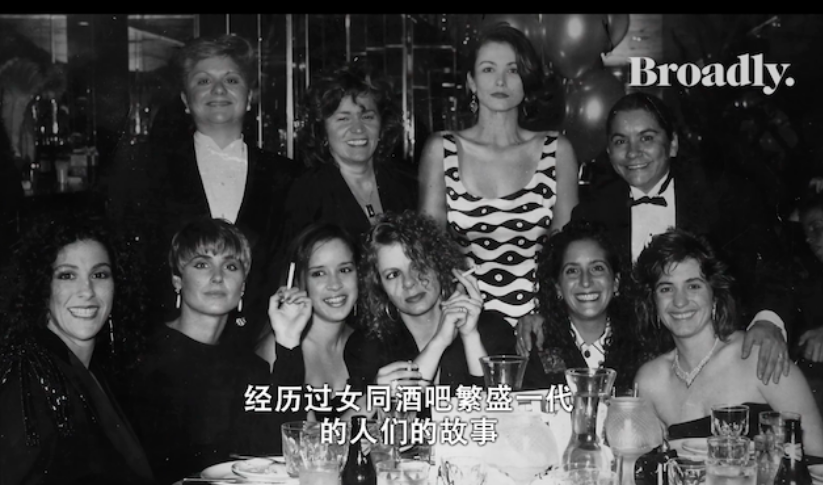
Source: http://www.vice.cn/read/vice-report-the-last-lesbian-bars
While San Francisco was great for her self-discovery, her family was another story. Vivian is a first generation immigrant. Her family immigrated to the U.S. from a small, isolated, and conservative town in Southern China. While Vivian’s parents actively engaged in grassroots and social activism, they had zero interest in LBGTQ rights or activism.
She remembers the night she came out to her family- “it was a rainy midsummer night before I started my first day of high school (senior year). I confessed to dad and mom that I am not interested in boys. Then the whole thing turned out of control – mom burst into tear[s], dad was furious. They told me the story about how difficult it was to migrate. They said I was an insane girl who’s never grateful of anything in life.” Vivian sighed, “What’s even more ironic? There’s a bar with the rainbow flag right next to our apartment. Dad probably [wanted] go downstairs and burn it down that night.”
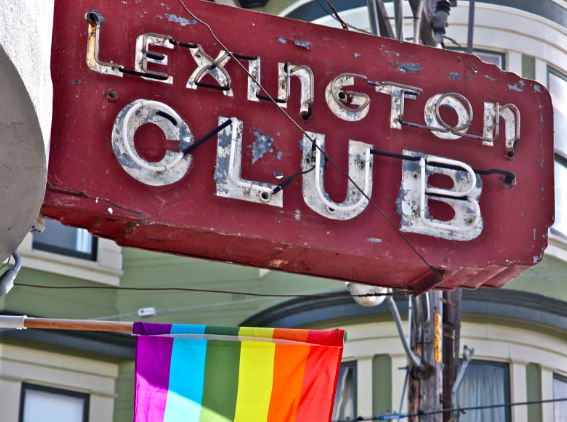
Photo credit: Vivian Chou
She rebelled against her family’s rejection by applying to colleges on the East Coast and got admitted into NYU. She convinced her parents that she was 'normal' again, as it was the only way they would let her go to a new city.
Before leaving San Francisco, Vivian remembers the profound effect that the closing of Lexington had on her. Lexington was the very last lesbian bar in San Francisco. Vivian had become close friends with the owner, Lila Thirkield, after she interviewed her for an article. Lexington's closure made her feel uncertain and anxious. It was in that space and frame of mind that she started her new life in New York.
Like San Francisco, NYC has a history of LBGTQ activism, diversity, and inclusiveness. New York is openminded, progressive and liberal. Vivian found freedom of self-expression in the vibrant Greenwich Village and Washington Square Park communities. She met some of her best friends at NYU's LGBTQ+ Club and often frequented famous gayborhoods like Hell’s Kitchen.
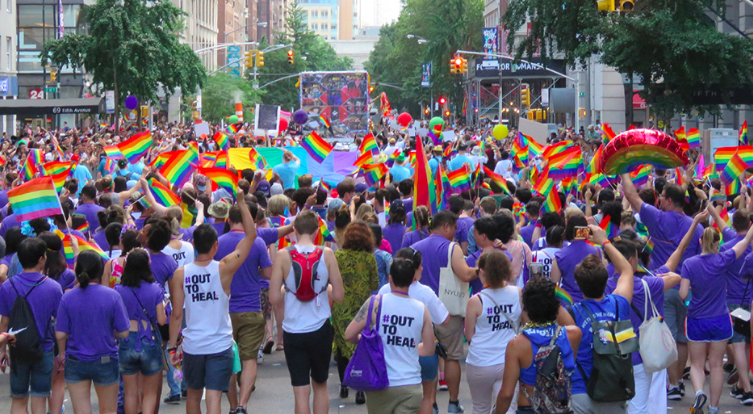
Source: https://nyulangone.org/patient-family-support/caring-for-the-lgbtq-community
However, when entering her Sophomore year, Vivian began to long for something more intimate and meaningful.
“The novelty and passion for a fast-paced life gradually wore off. Those bars became too noisy for me. They are good for short-term relations or one-night-stand[s], but not [the] lifestyle I desire.” She paused for a few seconds, “Even in the ‘Golden Age of Lesbian Bars’ [in the] '60s, lesbians rarely looked for hook-ups. Rather, their purpose was to unite the community and support each other. But now it seems quite different – people go there for that one and the only purpose – have fun and get laid with some stranger. Surprisingly, once you choose to keep away from it, you suddenly feel marginalized and subtly discriminated by the ‘mainstream’.
Ultimately, the LBGTQ community is dominated by mainstream culture and she felt estranged. Her fluent English skills and assimilation into Western culture couldn't save her.
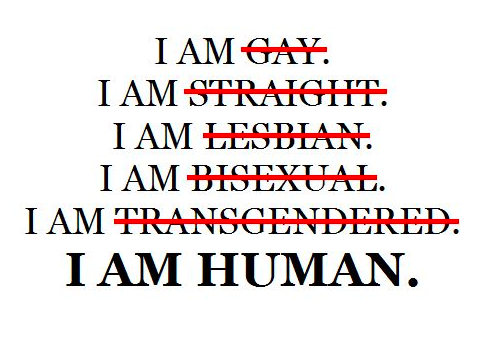
Source: https://justapreciouspenny.wordpress.com/2015/06/26/taste-the-rainbow/
It was in this space and frame of mind that the idea for the Asian Pride Project was born. The Project is an online space that explores the triumphs and struggles of the Asian LGBTQ through the eyes of their families, friends, and themselves. The co-founder, Elena Chang, is a Korean woman that Vivian met in a Sociology class at NYU. Over the course of the class, they bonded over going to ‘Caveat’ and watching the LGBTQ show ‘So Fascinating’.
“Yvonne and I talked endlessly about the genius satire and fashion commentary of that show, and then we just switched the topic to the current circumstances of the Asian LGBTQ in NYC. She told me that she’s a bi-sexual. We shared so much in common," said Vivian.
In regards to her own future, Vivian’s main concern is the continuous struggle with her parents. “No matter how I strive to bring Asian LGBTQ groups together to socialize and promote pride, I always have to hide the ‘visibility’ in front of my parents. I’m not sure how long it will last. I am often nostalgic about the West Coast, but that part of memory forces me to avoid thinking too much about the old days,” said Vivian.
“Only their acceptance will bring me the ultimate sense of belonging," she concluded. It is her hope that one day she can return to San Francisco with the confidence and comfort she has gained in New York.
Are you a member of the Asian LBGTQ community? Feel free to share your experience in the comment section below.
[zombify_post]

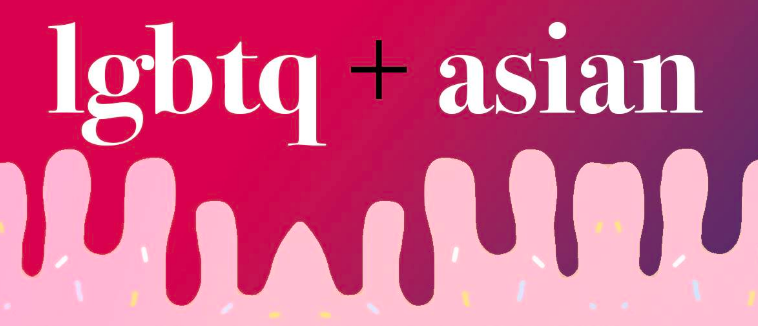
0 Comments